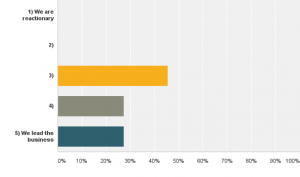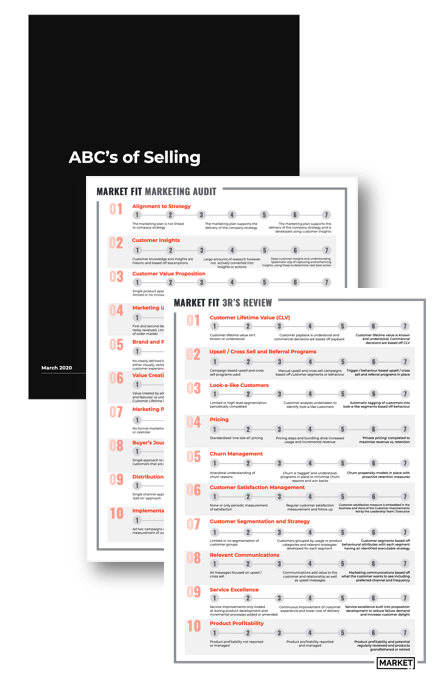Inspiration almost never strikes the way you think it might.
Interviewed in Sydney earlier this week to promote his new film, Richie McCaw explained the drive to World Cup victories in 2011 and 2015 kicked in with painful losses to the Wallabies, both within striking distance of the tournament itself. The losses hurt, and inspired a determination it wouldn’t happen again. For one of the original innovation gurus and great scientific minds, inspiration started with an apple bonking him on his head. And in case you’re wondering, inspiration for that other famous Apple came from just as unlikely a place.
And then there was me.
A major inspiration in my career development landed just over a decade ago. It was the product of working for a particular CEO. What made him so special (and, remember, this was over a decade ago)? Well, he did something very simple. Years before the customer-led transformation so common today, he decided the business was going to be marketing-led. And then the really clever bit… he went out and publicly stated it.
That simple act did two things:
- It transformed the marketing department (and me)
- It gave us the license to lead in the organisation
And that license to lead has been at the centre of the marketing teams I’ve run ever since.
I’ve written before about how advertising isn’t marketing. As technology provides ever better tools for direct relationships between brand and customer, the role of marketing evolves. The days of marketers owning creative/brand/comms (and maybe PR and research) are all but gone. Today’s marketers play way outside those sandpits, with an expectation of expertise across data, analytics, personalisation, automation, and customer (to name just a few).
Marketing is now all about solving customer problems. Doing that increasingly means working right across the business. This WSJ/Deloitte piece puts it well – the CMO of the future is no longer “the creative one”. Instead they are a blend of left and right brain, equally as fluent in stats and data as they are campaign creation. Many marketers now own revenue targets and are expected to directly and tangibly influence growth across the business. And that means their ownership across the organisation is expanding.
As a result marketers are moving into territories once considered off-piste. In fact, there’s never been a better time to be a CMO. The swift shift to customer-led organisations puts CMOs at the centre of business, and is giving savvy operators a higher profile and bigger say.
And it’s not just in general business. As tech assumes a higher profile in marketing and customer activity, CMOs now own IT decisions within the marketing vertical, and are predicted to spend more on digital than CIOs in the coming year. While it is likely they already own purchasing decisions in traditional marketing technology functions (CRM, ecommerce, digital marketing etc), in 71% of companies they are also influencing or choosing technology providers across the wider business.
So, given all of this change, I was keen to get the thoughts of The Exponential Agency’s CMO dinner group. I wanted to understand how NZ ranked against the global trend – was the CMO of the Future already here? It felt only natural to test the state of the local market against this surge in all things CMO. So I asked the group to answer three questions, ranking their answers on a scale of 1-5:
- Where are you on leading the business?
- Where does your CEO believe you should be?
- What do you “own” across the business (defined as under your direct line management)
It turns out the group experience is in line with global trends (albeit with some room for improvement). 55% of responses identified as either leading the business or progressing towards that ideal. Interestingly though, 80% believed their CEO wanted them to either lead or progress towards that ideal. That suggests CMOs may still not be taking full advantage of the licence being offered them.
Where are you in ‘leading’ the business?
And while brand, market strategy and analysis, and GTM almost exclusively reported directly to the CMOs, areas such as digital (reporting into 60% of the group), revenue (reporting into 90% of the group), customer experience and customer service (55% and 45% respectively), were all also under the CMO brief.
So, if CEOs and organisations are now giving you an explicit licence to lead the business, here are a few questions you should ask yourself to make sure you’re grasping the opportunity.
- What are my CEO’s expectations of my and my department, both explicit and implicit? Am I confident I know what they expect?
- What capabilities do I need in my team and myself?
- How am I leading to bring these to life?
- What else could I be doing to stay ahead of the pack? Remember, this isn’t just about your CMO role, you now have the license to lead.
To be given the authority to effect change can sometimes feel overwhelming – I always thought this guy summed it up well… with great power comes great responsibility. It’s why when I look back on my CEO’s challenge with a ten year perspective I see it was more than just inspirational. It was also one of the most empowering (and scary) events in my career. But it’s a measure of the change we’re now seeing in marketing that this has become the new normal. And that’s why I truly believe there’s never been a better time to be a CMO.
KS





